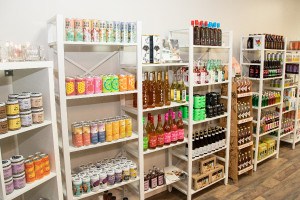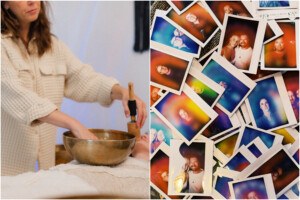Philly’s No More Secrets Is Opening a New “Menstrual Hub” in Germantown
The brick-and-mortar location, The SPOT Period, will provide menstrual health support for underserved populations and continue the work to end period poverty.
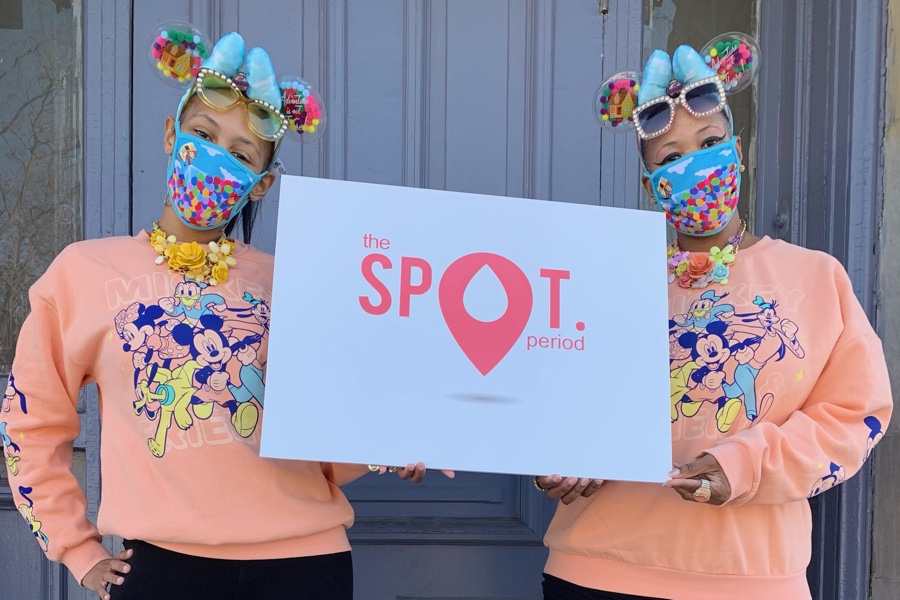
Nya McGlone (left) and Lynette Medley are officially launching menstrual hub The SPOT Period. | Photograph courtesy of No More Secrets
No More Secrets has been hard at work serving the Philadelphia community throughout the pandemic and for years beforehand. The sexuality awareness and counseling nonprofit was founded in 2012 by Mount Airy-based sexual health counselor Lynette Medley, who’s been delivering daily menstrual-care packages to folks in need around the city with her daughter, Nya McGlone. (Read more about how they got started here.)
In 2021, the two are still striving to change policies and generate awareness about period poverty and menstrual inequality — and they have a new brick-and-mortar location to help them fulfill their mission. With grassroots support, they’ve created their own haven: The SPOT Period in Germantown. SPOT (Safety, Programming, Optimal, Transformation) will function as a safe and welcoming space for community education, period care, and menstrual hygiene resources. The 2,500-square-foot space, which opens on Saturday, February 20th, will be equipped with offices, a reception area, a computer room, storage space for menstrual supplies, and a “Breonna Taylor” Safe Room sponsored by DivaCares. The SPOT Period will be open by appointment for those in need of supplies, space, education and counseling.
In addition to meeting a need for storage and distribution of menstrual supplies, The SPOT Period’s brick-and-mortar has other benefits for the community. “I wanted to create a safe, nonjudgmental space for marginalized communities to get information around menstrual health, menstrual hygiene, menstrual care, uterine health, and other things associated with living in poverty,” Medley explains. “I realized that period poverty isn’t just a singular issue. When you’re talking about something as taboo and stigmatized as your menstrual cycle, so much else comes out of the conversation. We realized we really needed a space to be able to engage people holistically around menstrual health and hygiene. We’re out there, and people are asking about other issues: ‘Do you have resources for this?’ ‘Can you help me with this?’ We wanted to create a place where people can be able to use a computer or just have a space to sit for a moment while we get the resources they need.”
To participate in The SPOT Period, community members must reserve a time in advance. Throughout the COVID-19 pandemic, the team will take each person’s temperature upon arrival and provide masks if needed. They will then do an assessment to determine what supplies and services are required. Initially, the hub will accept eight to 10 appointments a day and evolve as needed. (After-hours needs will be met on a case-by-case basis, but it’s strongly recommended that people submit requests ahead of time via the website.)
No More Secrets will also be providing educational panels and sessions from the new location. These events will feature academic partners from Thomas Jefferson University — Allison Casola and Shawana Moore — as well as political figures like State Representative Darisha Parker. Medley says to expect virtual and in-person panels and discussions on STIs, contraception, proper usage of sustainable options such as menstrual cups, regulating menstrual cycles, and issues from abnormal periods to endometriosis to PCOS to fibroids, as well as health-care resources; life skills like budgeting and nutrition; and bodily autonomy, consent, and healthy relationships.
The space will also provide access to clean water and operable toilets for menstruating folks who don’t always have reliable access to these basic amenities, as well as first-period kits from Period, The Menstrual Movement. In addition, they’re partnering with Goldenrod Community, a nonprofit that provides support to people reentering society after incarceration, since much of the population No More Secrets serves has been impacted by incarceration at some level.
This multifaceted approach to the new-brick and mortar is intended to be an answer to multifaceted needs. “We realized the greatest impact would come from a combination of deliveries and pickups, coupled with providing a safe place and a comprehensive approach to addressing the needs of persons experiencing economic hardships and menstrual insecurities,” explains Medley.
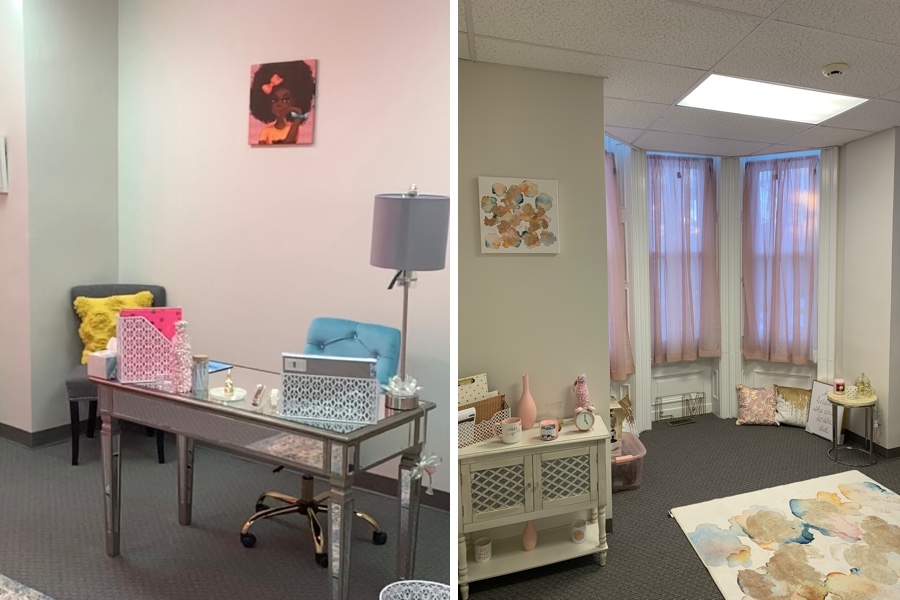
The SPOT Period will have comfortable spaces for learning and sharing of resources and stories. | Photograph courtesy of No More Secrets

The SPOT Period will also serve as a hub for supplies, pickup and delivery of menstrual products. | Photograph courtesy of No More Secrets
The Breonna Taylor Safe Room at the hub represents a safe space for marginalized women and girls. “In our community, we deal with so much racism and discrimination,” Medley says. “I’m a Black woman in America, and we don’t have a lot of safe spaces in our community. In the situation that happened with Breonna, she was in her home and she was killed. The room will feature a portrait of Breonna Taylor we commissioned from a Black artist named Calvin Coleman, and will have two futons for a quiet space to lie down. It’s in her memory because that situation still stings me. As Black women, we see over and over again that there’s no accountability for the trauma that’s inflicted on us — it’s often dismissed. So how do I show myself as vulnerable in a space where I don’t even feel as if I’m accepted or loved or valued? The room is there for those who need to engage in these vulnerable conversations.” The Breonna Taylor room will also house in-person educational seminars and panel discussions once they’re safe to host amid COVID-19.
The brick-and-mortar is opening new doors for the kinds of products No More Secrets provides. Menstrual cups, which require access to clean running water and a private bathroom, have been an issue for some of the population No More Secrets works with. But now, Medley has found that the population they serve is expanding, and No More Secrets is partnering with DivaCares to promote use of menstrual cups, which create less waste because they can be reused month after month.
“DivaCares will be supplying a monthly donation of 200 Diva menstrual cups,” Medley says. “They’ve always been very kind in sending products, but in the past, I had told them it was not going to be advantageous for most of my population because of access issues and issues of education on how to use them. But as our dynamic started shifting during the pandemic — when gyms shut down, museums shut down — that just hit a whole lot of people in different ways. Students at home were financially stressed. The community we serve shifted. I realized we now had different communities that we could offer these sustainable options to. In addition to our community changing, we wanted to create a way that more people could have access to education and services, especially running water and a bathroom.”
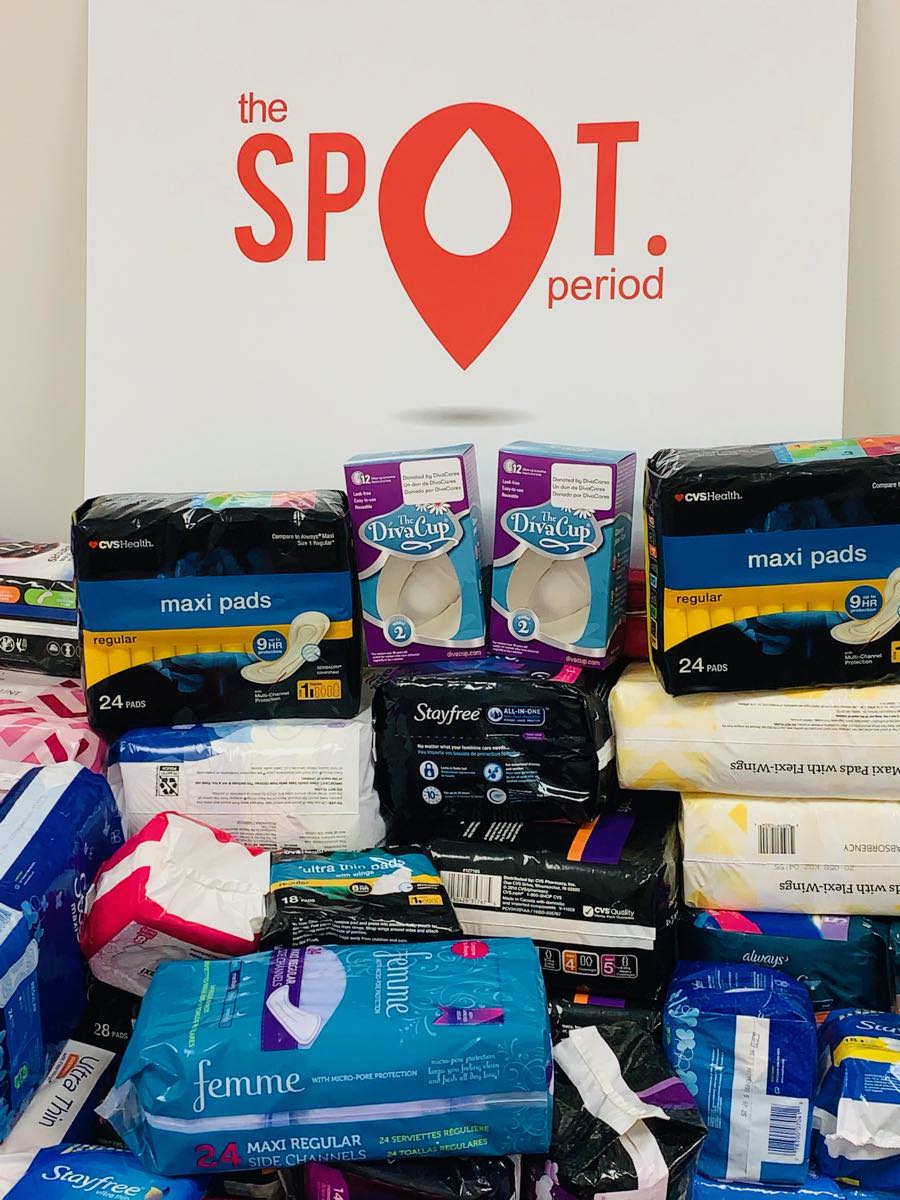
Diva Cups and other menstrual products will be available at The SPOT Period. Photograph courtesy of No More Secrets
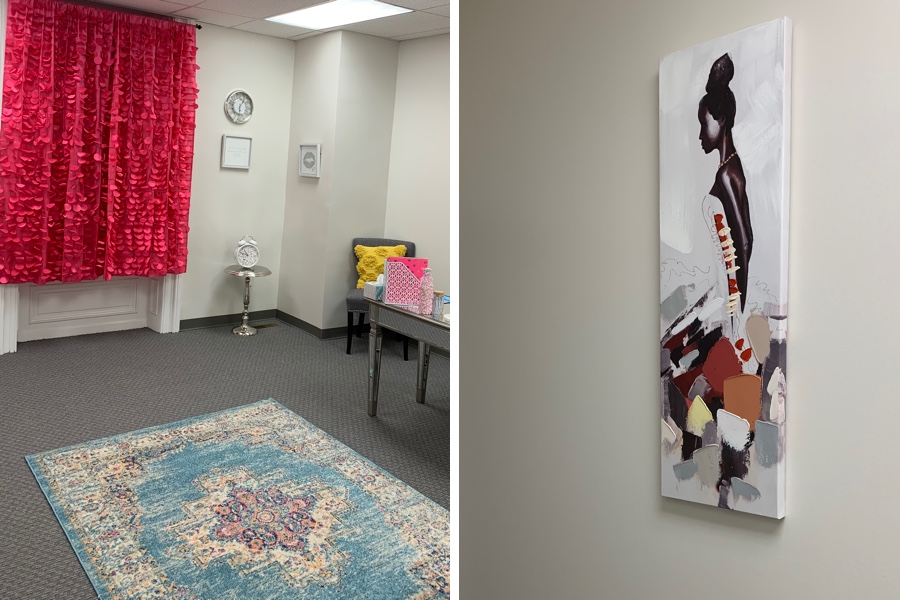
The interior of The SPOT PERIOD. | Photograph courtesy of No More Secrets

Nya McGlone and Lynette Medley stand inside their new menstrual hub, The SPOT Period. | Photograph courtesy of No More Secrets
Currently, the mother-daughter duo are still doing all of their deliveries themselves. They’re working toward raising funds to buy a van — right now, they have to make multiple trips to the same locations because their vehicle lacks the capacity needed — and implementing a central delivery system through which others can volunteer to take on some of that work.
“Since the Hub has more spacing for social distancing and a parking lot, we are formulating a system similar to other programs where interns and volunteers can sign up to pack bags, pick up donations, do deliveries and make calls,” says Medley.
Ideally, these changes will smooth the work flow and make it more manageable. “The current movement was impactful, but it wasn’t sustainable,” says Medley. “If Nya and I continued individually making 250 to 275 deliveries per week in addition to pickups and drop-offs to community events, our bodies would break down and interrupt services.”
The hub provides another shift to cater to changing needs: Both pickup and delivery services will be on offer. “Some people do want to pick up, and they’re able to do so,” Medley explains. “When we first started, we were just working in deep poverty, mostly — people who just had no access. But now, things have shifted because of the economic turmoil due to the pandemic, so we have people who just lost wages, lost jobs, a partner has lost wages — so they’re in need, but they’re at a different level of economic security. Some can’t afford menstrual products maybe until an unemployment check comes, or until their partner gets paid, but they might have access to vehicles to pick up products.”
The journey is still ongoing for the No More Secrets crew, but their success so far has been encouraging. “The organic, grassroots movement and community support has been astronomical,” says Medley. “I think that’s my and Nya’s greatest accomplishment. Nya and I as two Black women and owners and operators of a Black-run organization being able to move forward and open a menstrual hub that’s the first of its kind — this was meant to be, because of our passion and our commitment to our community. We understand how it is to be a Black woman in America. We knew that we had to create a space to be able to better serve our community in areas that are in deficit. Health care, menstrual care — these are all disparities in our community, and that’s why we wanted to create it. I’m just so excited that we were able to do this.”
The SPOT Period is located at 4811 Germantown Avenue, suite 101. View hours, COVID-19 precautions and submit product requests or make appointments on the website. To donate, visit the website. You can also follow No More Secrets on Instagram here.
Let’s get social! Join Be Well Philly at:
FACEBOOK | INSTAGRAM | NEWSLETTER | TWITTER

Philadelphia magazine is one of more than 20 news organizations producing Broke in Philly, a collaborative reporting project on solutions to poverty and economic mobility in the city. Read all our reporting here.
